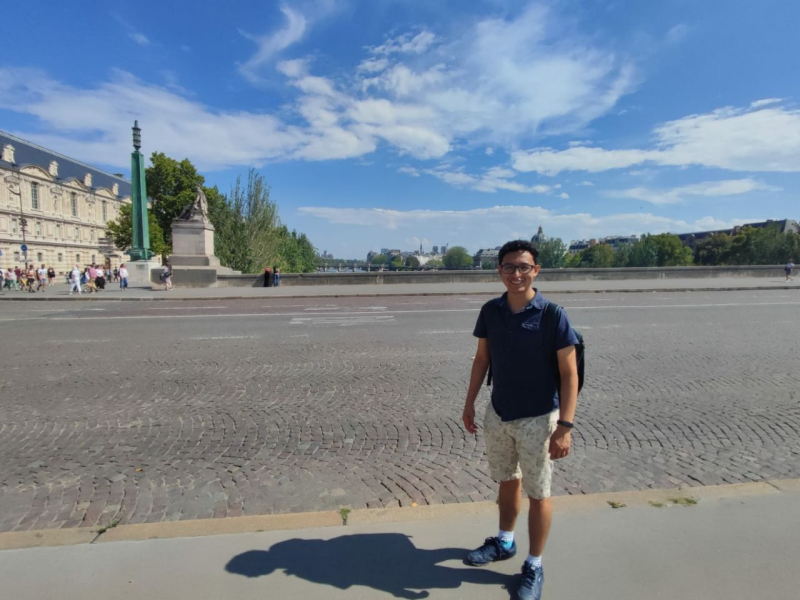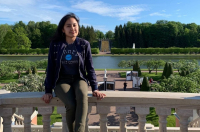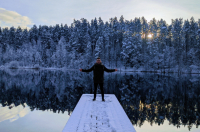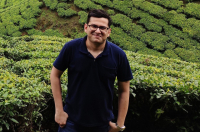Tell us something about your hometown.
I hail from the city of Quito, the capital of Ecuador. My country is located on the west coast of South America. It is home to rich biodiversity thanks to the Amazon rainforest and the Galapagos Islands.
How long have you been in Russia?
I have been here for almost four years now. I came here back in 2018 to pursue a Master’s degree. Now I am a second-year PhD student.
Why did you decide to study abroad?
I wanted to explore more. Studying in a foreign country has been a bright prospect for me as it has a number of benefits. First of all, you get to learn a lot about international relations. I have learned so much about Russia and its culture in these four years which otherwise would have been impossible. The second reason is the exposure that it provides. As an international student, I have got numerous opportunities to collaborate and network with people worldwide.
What is your PhD project all about?
The objective of my research is to develop next-generation films that are biodegradable, biocompatible, and even edible! These films could be used by several industries (for instance, chocolate manufacturers) to wrap their products. That would be a step closer to a sustainable future.
What made you interested in this project?
I was an environmental science student during my Master’s. That is where I learned all about sustainability. Since then, I have been developing my project.
Where did you do your Master’s?
I did it at the Far Eastern Federal University in Vladivostok. It is a very well-known Russian university. The many conferences and forums that are organized by this university draw top delegates from different parts of the world.
What does a day in your life look like?
It depends on my to-do list, but usually, my day starts with a cup of coffee. I prepare my breakfast and get ready for work. I reach my laboratory around 10 AM. On some days I perform experiments while on others, I read papers, prepare presentations, etc. I return to my dormitory in the evening and spend some more time reading papers. Occasionally, I teach Spanish online. I have students from different countries including Russia and Germany. It is a very interesting job.
It is rumored that PhD students don’t have time for hobbies. Is it true?
It comes down to the individual's time management skills. If you know how to manage your schedule, you will be able to find time for your hobbies, too. I don’t get much free time during weekdays, but on weekends, I do go for a walk in the park.
Do you receive a stipend for doing a PhD at ITMO?
I am doing my PhD on a scholarship. So, I receive a stipend from that. Also, I am working as a mentor at ITMO, thanks to the ITMO.Mentors program. So, I receive a salary from there as well.
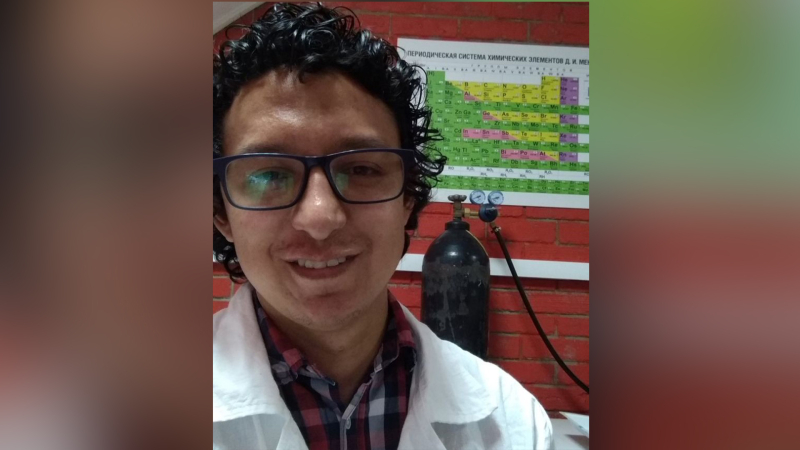
David is working towards creating a sustainable future. His goal is to create biodegradable packaging films. Photo courtesy of the subject
What would your advice be to new PhD students?
Before starting your PhD, ensure you know what you want to achieve in the next four years. Often students get lost in optimism. Avoid that. Set realistic goals. Choose your supervisor wisely. They will play a crucial role in your life. Their thoughts should align with yours to some extent.
What’s your relationship with your supervisor like?
My supervisor is like my elder sibling. We are very close to one another. My supervisor guides me whenever I am lost. When an experiment fails, it is he who motivates me to get up and go at it again.
You have been away from home for a long time. Did you get a chance to visit your family?
Yes, I was just in Ecuador last month. It was my first trip back home after four long years in Russia. I missed my family a lot. It was a grand reunion. I did not feel like returning, mainly because of the food. I love a home-cooked meal. This time, however, I brought many South American foods with me.
Can you name some of them?
There is a special kind of banana that is very popular in Ecuador. I brought lots of those. Banana chips are also a popular snack back there. Also, I brought lots of corn with me. It's a special one, authentic to Ecuador.
Do you feel homesick?
Not really. I do miss them, but thanks to the advancement in technology, I am able to stay in touch with them every day. Whenever I miss them, I talk to them over a video call. It feels like they are right here with me.
Does it feel different living in St. Petersburg as compared to Vladivostok?
Yes, it does. Life in St. Petersburg is very different. I love both cities, but St. Petersburg is way bigger. There are lots of events taking place throughout the year. For instance, like every South American person, I am a football geek. If you live in St. Petersburg, you’re lucky enough to witness one of the best teams in Russia: Zenit St. Petersburg. The stadium is absolutely beautiful.
Which is your favorite football club?
It's Zenit in Russia and Barcelona in the rest of the world. I am also a huge fan of my national team. They will be playing the opening match of this year’s World Cup. They’ll go head to head against Qatar, the host nation. I am excited about this match-up. I hope we win!
Who is your favorite player?
It is Messi. He is the G.O.A.T. I adore him a lot. I am also a fan of Ronaldinho from Brazil. Unfortunately, he has retired from playing football. But he was a magician in his prime.
Do you play football, too?
No, I don’t. I used to go on bicycle rides a lot, but nowadays I have stopped doing that, as well. I don’t know if I can blame it on the traffic or the cold weather. I just go for walks now.
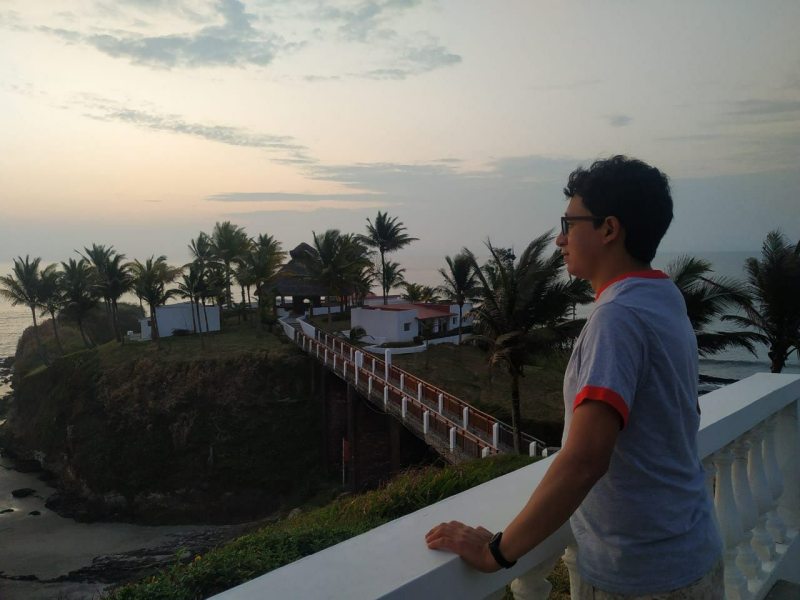
David loves to spend his weekends amidst nature. Photo courtesy of the subject
What’s your favorite place to visit in Russia?
It has to be Pushkin. I love this place. It is so beautiful. Whenever I visit this place, it feels like I am experiencing a poem where the poet is romanticizing nature.
What are your plans for the near future?
I would like to make some significant progress in my research. I am planning to apply for a grant – it would really boost my work. Fingers crossed! Apart from that, I would like to continue teaching and get better at it.
